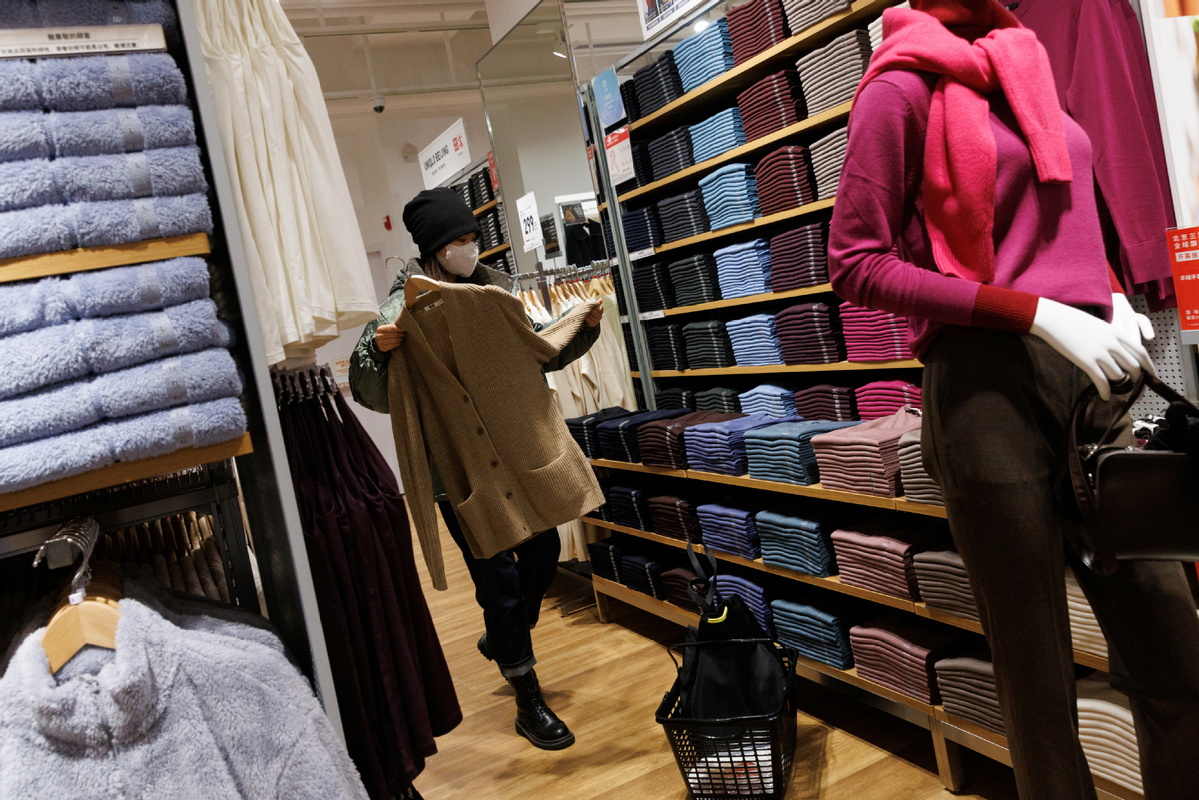Uniqlo founder refuses to play allegiance game
By WANG XU in Tokyo | CHINA DAILY | Updated: 2022-01-08 07:19

The founder of Japan's clothing giant Uniqlo has refused to pledge allegiance to the United States over cotton sourcing from the Xinjiang Uygur autonomous region.
Asked for his take on US-China tensions, Tadashi Yanai told newspaper Nikkei that he wants to take a neutral stand.
"The US' approach is to force companies to show their allegiance. I wanted to show that I won't play that game," said the second-richest man in Japan, refusing to comment on whether Uniqlo uses cotton sourced from Xinjiang amid US allegations of "forced labor" and import bans against China's westernmost region.
Foreign Ministry spokesman Wang Wenbin blamed Washington on Thursday for "political coercion", saying that the US has been spreading rumors and stirring up trouble on Xinjiang-related issues so as to hinder China's development and undermine the prosperity and stability of Xinjiang.
"The US forces multinational companies to take sides and pledge allegiance to them, which is out-and-out political coercion and completely violates market rules and business ethics. It not only damages its own interests and credibility, but also undermines the stability of global industrial and supply chains and disrupts the international trade order," said Wang, adding that cotton of Xinjiang is white and of high quality, and that the people in Xinjiang are hardworking and industrial. "I believe that more and more enterprises will be able to distinguish right from wrong, rise above the disturbance of political pressure and make independent business decisions."
Yanai said despite growing competition, economic relations between Washington and Beijing remain strong.
"The US and China may appear to be at odds, but they are actually not. American financial capital is flowing into Chinese investments. Apple products are all made in China. Chinese exports to the US have been rising. Economically, things are going well between the US and China," said Yanai, noting that the US is doing what it is doing because of its deep-rooted mindset.
"There was a time when America looked at Japan in the same way it looks at China today. Imported Japanese cars were destroyed with hammers. Toyota Motor was summoned to Congress over its handling of a recall under the presumption of guilt. The US has such tendencies," he said.
wangxu@chinadaily.com.cn























